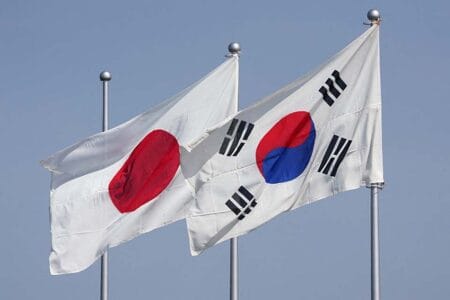August 18, 2025
SEOUL – South Korea’s criminal punishment for breach of trust is back in focus after lawmakers broadened directors’ fiduciary duty beyond the company to include shareholders.
The change, part of a Commercial Act amendment passed in July, has fueled concerns in the business community that it could open the door to excessive liability and criminal charges over disputed management decisions.
In response, President Lee Jae Myung launched a task force on “Rationalizing Economic Criminal Penalties,” with revision of breach of trust at the top of its agenda.
“A business misstep in Korea can land you in prison, and that chills investment,” Lee said. “We must ask whether layering criminal sanctions, on top of economic and financial penalties, for breach of trust aligns with global norms.”
Breach of trust applies when executives or employees violate their duty of good faith for personal gain or cause losses, and Korea is among the few countries to treat it as a crime with some of the toughest penalties.
Korea regulates breach of trust under three statutes. The Criminal Act covers general and occupational cases, while the Commercial Act adds “special breach of trust,” punishable by up to 10 years in prison or a 30 million won ($22,000) fine. For cases exceeding 5 billion won, the Act on the Aggravated Punishment of Specific Economic Crimes mandates at least five years in prison — the same minimum as for murder.
Japan, Germany and France also criminalize breach of trust but apply it far more narrowly. Germany shields executives under a “business judgment rule,” while Japan and France limit liability to cases with clear intent or misappropriation.
The UK and US have no equivalent statute; instead, they rely on fraud or embezzlement laws, with civil courts settling most disputes.
“In Korea, even the owner of a one-person company can face criminal charges for using a corporate card on personal expenses,” said Kim Woo-jin, a business professor at Seoul National University.
“In the US, the same act would be neither a crime nor a civil case since you cannot sue yourself. Serious breaches should be punished, but much of this belongs in civil law. Korea treats it too harshly as a crime, with prosecutors wielding disproportionate power.”
Korea’s statute leaves “act in violation of duty” undefined and applies broadly to any property benefit, subjecting even good-faith decisions that result in losses to scrutiny.
Moreover, anyone can file a complaint, making annual cases top 2,000. Yet, roughly just 1 in 10 indictments result in a conviction, fueling criticism that prosecutors overreach, particularly against conglomerates.
Samsung Electronics Chair Lee Jae-yong was cleared in February over a 2015 merger, ending a decadelong case. Hanwha’s Kim Seung-youn, CJ’s Lee Jay-hyun and former KT chief Lee Suk-chae have also had charges dropped or sentences reduced after courts could not prove them guilty.
Justice Minister Jung Sung-ho recently warned against prosecutorial overreach. “Prosecutors have been criticized for fostering risk aversion by applying hindsight judgments to strategic decisions,” he said in his July inaugural speech. “Such caution risks weakening management and slowing decision-making.”
Even Lee Bok-hyun, a former Financial Supervisory Service chief who once pursued high-profile breach-of-trust cases as a prosecutor, has argued the law “unjustly exposes all boardroom choices to criminal liability,” a regime found nowhere else, he emphasized.
“Management decisions should be resolved in the boardroom, not the courtroom,” he said.
At the time, Lee, the former FSS chief, argued the law could be repealed if directors’ fiduciary duty were extended to shareholders, a change enacted in July. The amendment reignited calls within the corporate sector for scrapping breach of trust altogether.
Yet while many agree the law needs significant reform, some remain cautious, warning full repeal is risky in Korea’s conglomerate-dominated corporate environment, where large-scale abuses — especially self-dealing or third-party favoritism — could go unchecked.
“Many breach-of-trust cases arise from asset transfers between affiliates,” said lawyer Cheon Joon-bum, vice chair of the Korean Corporate Governance Forum. “It’s often difficult to determine whether such capital shifts were made in good faith for both the investing and receiving firms. In many instances, one company bears losses to support another, leaving unrelated stakeholders exposed.”
Professor Kim also warned that abolition is premature, noting it could leave controlling shareholders’ unfair decisions against minorities unchecked, even when losses are not immediate.
Cheon went further, arguing that the problem lies in execution. “Only about 10 percent of indicted cases end in conviction, not because there was no wrongdoing, but because prosecutors couldn’t prove it,” he said. “In the US, cases that can’t be proven wouldn’t even begin. Here, they drag on for years, only to end in acquittal. That’s a loss not only for genuinely innocent companies, but for the credibility of the judicial system.”
Experts point to the “business judgment rule,” used in Germany and the US, as a way forward.
“The key is ensuring fairness for all stakeholders. The rule shields directors when decisions affect all shareholders equally, even if the company incurs losses,” said Cheon.
The government and ruling party are moving to embed the rule in the Criminal Act, with Democratic Party of Korea Rep. Kim Tae-nyeon already tabling a related bill.
Yet Korea’s breach-of-trust law is especially difficult to enforce because regulators, not boards, must prove misconduct.
“Regulators, as outsiders, struggle to obtain the documents needed to challenge management decisions. That burden makes it difficult to hold executives accountable and leaves most questionable transactions unpunished,” Cheon said.
He stressed that easing criminal penalties must go hand in hand with stronger civil remedies. In the US, boards bear the burden of proving a deal’s fairness in civil suits; in Korea, regulators shoulder it.
Experts emphasize that legal reform alone will not suffice.
“Korea needs not only statutory change but also clearer internal procedures to prevent shareholder losses,” said Cheon. He pointed to Germany’s “Konzern” system, which obligates corporate groups to safeguard minority shareholders in affiliate transactions before proceeding.
Professor Kim added that Korea’s recently expanded fiduciary duty to shareholders will remain hollow without a more active litigation culture.
“In the US and Europe, shareholder suits serve as routine checks on management. A comparable level of shareholder-driven litigation must take root in Korea as a precondition for easing breach-of-trust laws,” said Kim.
The government plans to unveil by year-end a reform package to “rationalize” economic criminal penalties, including breach of trust. Urgent measures will be submitted to the National Assembly in September, with additional proposals finalized by year-end and aimed for passage in the first half of 2026.







